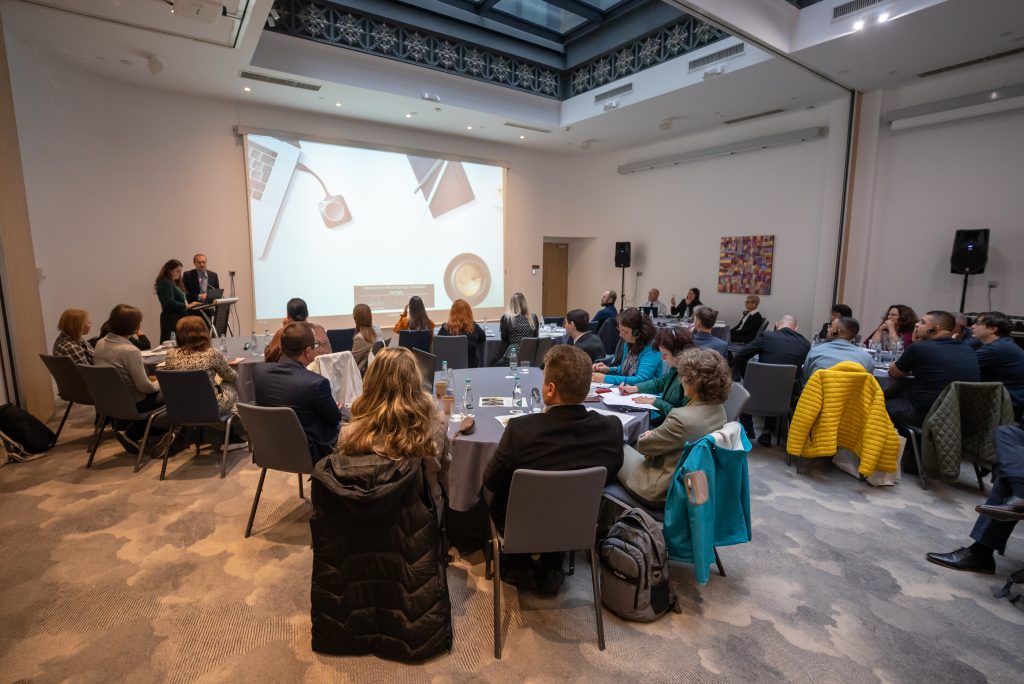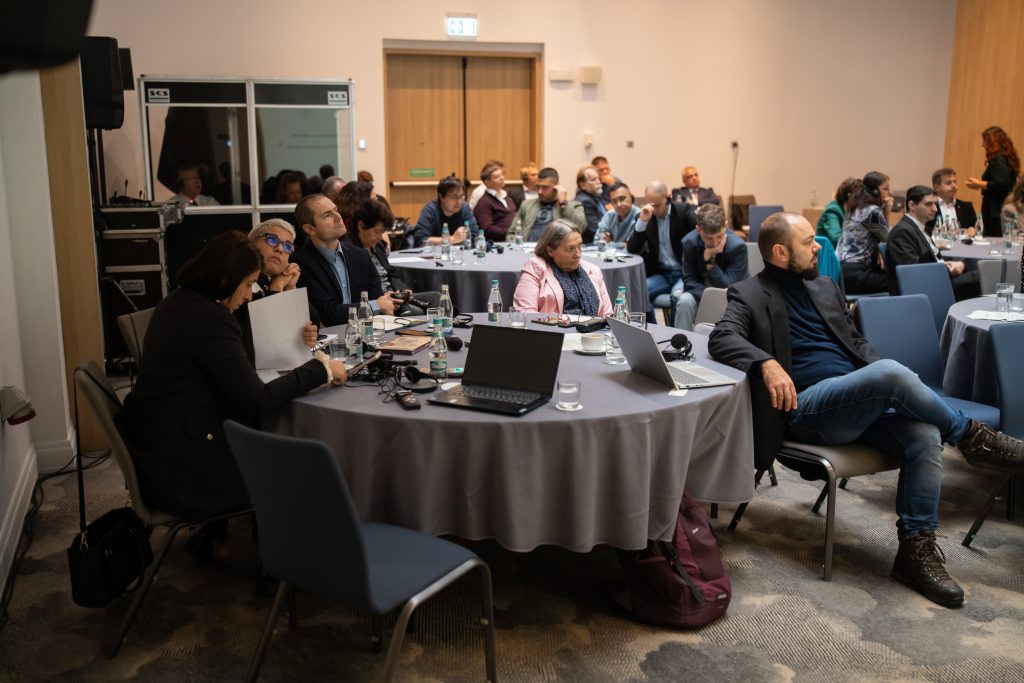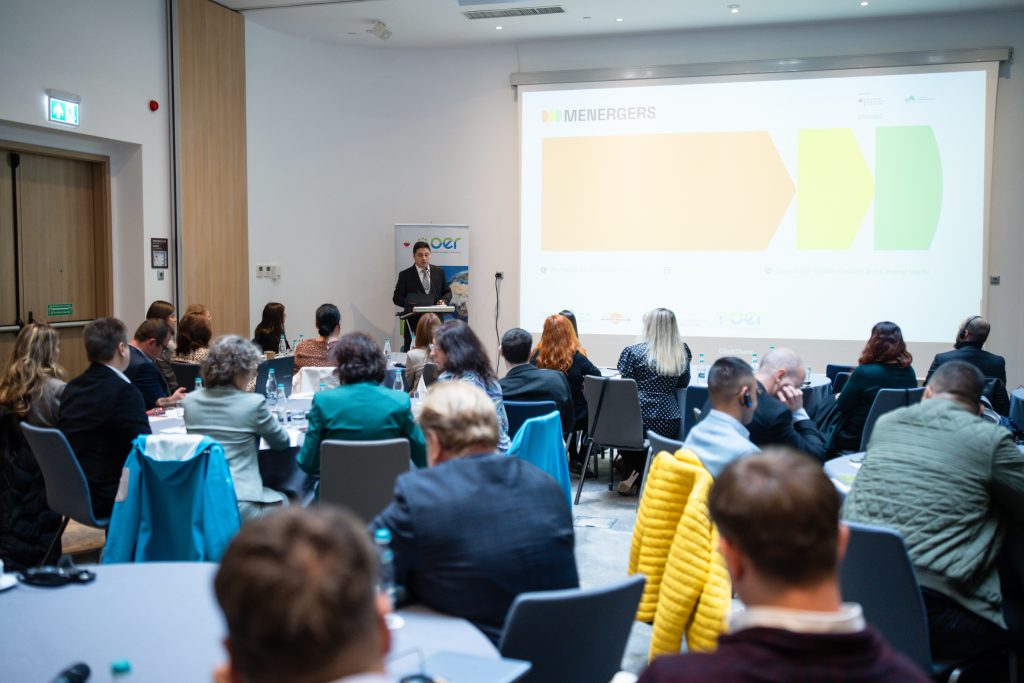Promoting Dialogue and Collaboration Between National and Local Authorities
On October 1, 2024, a new meeting of the Climate and Energy Dialogue Platform took place in Bucharest, organized within the NECPlatform project. The event brought together 17 representatives from institutions and local authorities, as well as agencies and companies involved in energy and climate projects, under the umbrella of the conference “Integrating the local perspective into national energy and climate strategies”.

The dialogue was organized within the NECPlatform project, which aims to create a framework for exchanging information between national and local authorities, essential for achieving the targets outlined in the National Energy and Climate Plan (NECP). Through this project, the importance of multi-level dialogue is emphasized, as it is necessary to adjust and adapt energy and climate strategies to the specific needs of each community in Romania. This approach is crucial in the transition to renewable and sustainable energy sources, considering the diversity of challenges and needs.
Sorin Elisei, General Director at the Ministry of Energy, took the floor to highlight the importance of the NECP in this context. He emphasized the initiatives included in the NECP, which aim to improve efficiency and reduce costs in communities, highlighting the need for a fast and sustainable energy transition. Additionally, he provided an overview of the consultation processes that took place this year and emphasized the importance of the interinstitutional working group. He also underscored the efforts of the Ministry of Energy, which faces a wide range of ideas proposed by civil society. Romania plays a key role in achieving European Union objectives and the cross-border cooperation is crucial with neighboring countries through collaborative projects.
The role of local authorities
Another key topic was the role of local authorities in this transition. As decentralization becomes increasingly important, local authorities will be viewed as key players in implementing sustainable energy solutions. During the discussions, local authorities highlighted the urgent need for funding to implement local energy projects. In this regard, Mr. Sorin Elisei mentioned the funding sources provided in the NECP, emphasizing that these will support the implementation of innovative and sustainable solutions at the community level.
One of the main challenges discussed was the transport sector, which has made the slowest transition to renewable sources so far. In 2022, only 9% of transport used renewable energy. Sorin Elisei mentioned that, despite progress in other areas, many second-hand diesel cars still run on fossil fuels. As an alternative for private transport, he highlighted the transition to rail transport, but the greatest challenge remains the adoption of electric or zero-emission vehicles. This would not only significantly reduce carbon emissions but also lower long-term costs for communities and the entire economy.

Energy communities as a path to autonomy
At the meeting, Energy Communities were another central topic of discussion. These communities represent a model of energy autonomy and citizen involvement in the energy transition processes. Mr. Sorin Elisei highlighted ongoing efforts to develop specific models adapted to the Romanian context, as well as legislative changes underway to strengthen the legislative framework in this field. This legislative approach will ensure a solid foundation for the implementation of Energy Communities in Romania and support the creation of effective and sustainable local solutions.
Andrei Ceclan, invited expert, continued the discussion with a presentation titled “Energy Communities: From Concept Overflow to Reality,” in which he engaged local authorities in a conversation about the challenges and opportunities of these communities. He emphasized the importance of a clear vision and continuous support to make these concepts a reality on the ground.

Data as a core element of the energy strategy
Another important topic discussed at the meeting was data collection and use, especially in relation to the energy transition process. Cristian Ilie and Matei Dimitriu from the Energy Efficiency Department of the Ministry of Energy emphasized the importance of locally collected data to monitor progress and adjust national energy policy strategies. Data collection and analysis are essential to understanding the impact of implemented measures and identifying the most effective solutions in each community.
In conclusion, the Romanian NECP has seen a significant increase in ambition, aligning with European Union recommendations. This plan includes essential initiatives for improving costs and efficiency in communities, and funding for local authorities is crucial in achieving both national and European goals. The role of Energy Communities and their adaptation to the Romanian context were highlighted, and the ongoing legislative changes will strengthen the legislative framework and support their implementation on the ground. Furthermore, the importance of data collection and its use in decision-making processes was reaffirmed as an essential tool in the energy transition..
The event emphasized the essential importance of continuous collaboration and dialogue between national and local authorities to ensure effective energy governance. Local authorities, through national-level projects, will continue to play a crucial role in implementing the solutions necessary to meet sustainable energy targets and support the transition to a green future for Romania. Going forward, we will continue to strengthen the dialogue between national decision-makers, local authorities, and all relevant stakeholders.
